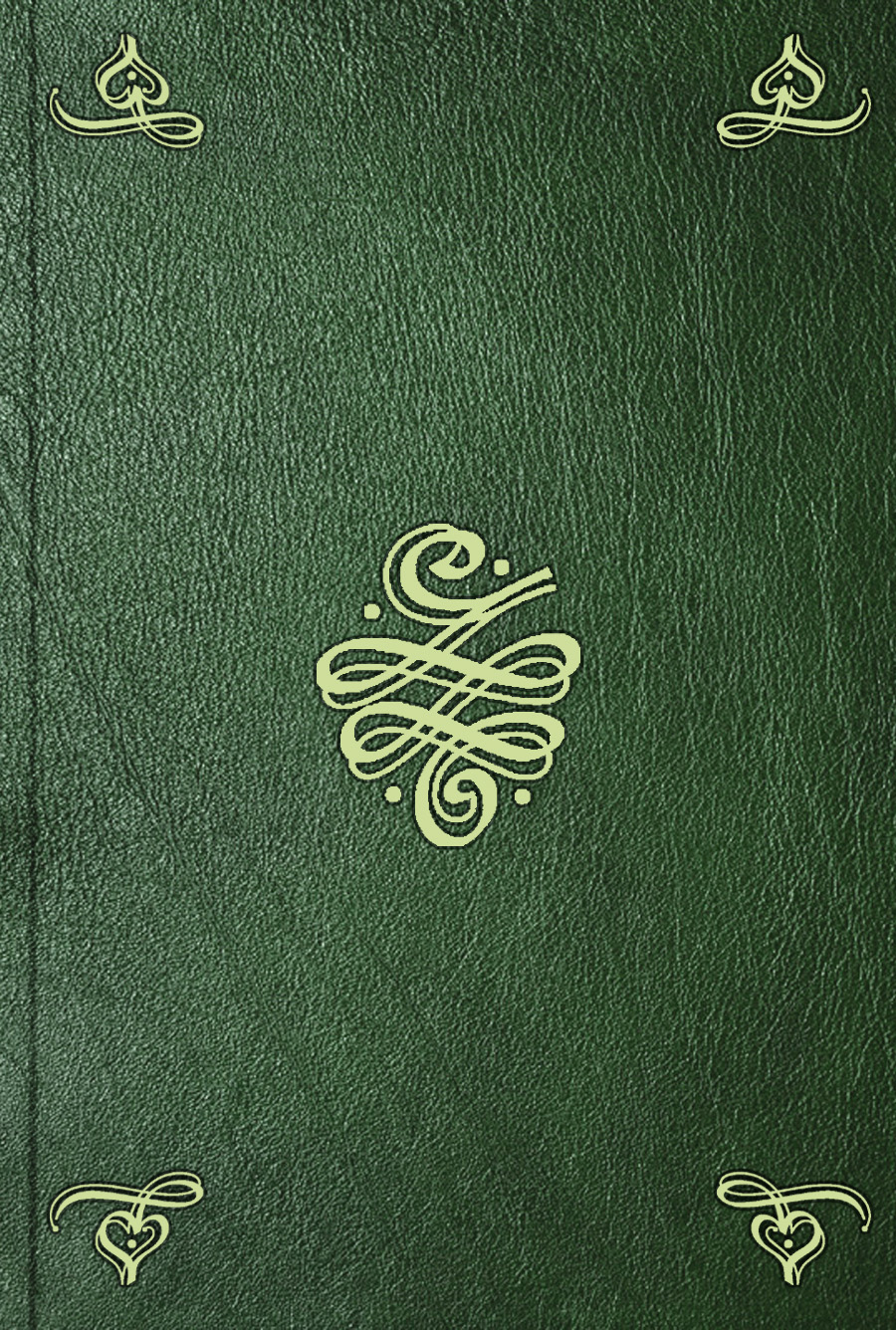Электронная книга: John Pinkerton «An essay on medals. Vol. 2»

|
Полный вариант заголовка: «An essay on medals : Vol. 2 : or, an introduction to the knowledge of ancient and modern coins and medals, especially those of Greece, Rome, and Britain : in 2 volumes / by John Pinkerton». Издательство: "Библиотечный фонд" (1808)
электронная книга Скачать бесплатно на Litres |
Другие книги автора:
| Книга | Описание | Год | Цена | Тип книги |
|---|---|---|---|---|
| An essay on medals. Vol. 1 | Полный вариант заголовка: «An essay on medals : Vol. 1 : or, an introduction to the knowledge of ancient and modern coins and medals, especially those of Greece, Rome, and… — Библиотечный фонд, электронная книга Подробнее... | электронная книга | ||
| Géographie moderne. T. 2 | Примечание: Современная география Полный вариант заголовка: «Géographie moderne, rédigée sur un nouveau plan, ou Description historique… — Библиотечный фонд, электронная книга Подробнее... | электронная книга | ||
| Géographie moderne. T. 6 | Примечание: Современная география Полный вариант заголовка: «Géographie moderne, rédigée sur un nouveau plan, ou Description historique… — Библиотечный фонд, электронная книга Подробнее... | электронная книга | ||
| Géographie moderne. T. 5 | Примечание: Современная география Полный вариант заголовка: «Géographie moderne, rédigée sur un nouveau plan, ou Description historique… — Библиотечный фонд, электронная книга Подробнее... | электронная книга | ||
| Géographie moderne. T. 4 | Примечание: Современная география Полный вариант заголовка: «Géographie moderne, rédigée sur un nouveau plan, ou Description historique… — Библиотечный фонд, электронная книга Подробнее... | электронная книга | ||
| Géographie moderne. T. 1 | Примечание: Современная география Полный вариант заголовка: «Géographie moderne, rédigée sur un nouveau plan, ou Description historique… — Библиотечный фонд, электронная книга Подробнее... | электронная книга | ||
| Géographie moderne. T. 3 | Примечание: Современная география Полный вариант заголовка: «Géographie moderne, rédigée sur un nouveau plan, ou Description historique… — Библиотечный фонд, электронная книга Подробнее... | электронная книга |
John Pinkerton
John Pinkerton (
He was born in
Pinkerton very much wished to purge his country's history of all
not yet advanced even to the state of barbarism; and if any foreigner doubts this, he has only to step into the Celtic parts of either Wales, Ireland or Scotland ...TheCelts were so inferior a people, being to the Scythians [i.e. Goths] as a negro to a European, that, as all history shows, to see them was to conquer them.
In an effort to further his theories, Pinkerton turned his energy to comparative Celtic and Germanic
To the very same end he set his time and inventive mind to collecting and creating older Anglo-Scottish literature. This was all the more important as far as his agenda was concerned because of the "Celtomania" produced by the
John Pinkerton's works are seen today as spurious, even ignoring the heavy infusion of extreme racism and Germanic racial supremacy theory. His personal correspondence with fellow academics is characterized by insecurity, slandering, bullying and extreme malevolence.
Despite this, Pinkerton is still an important figure in the history of British
References
Reading
* Ferguson, William, "The Identity of the Scottish Nation: An Historic Quest", (Edinburgh, 1998), pp. 250–273.
External links
*
* [http://encyclopedia.jrank.org/PIG_POL/PINKERTON_JOHN_17581826_.html 1911 Encyclopedia]
* [http://www.geocities.com/Heartland/Prairie/8980/famous_john_pinkerton.htm Short biography]
Источник: John Pinkerton
См. также в других словарях:
Italy — /it l ee/, n. a republic in S Europe, comprising a peninsula S of the Alps, and Sicily, Sardinia, Elba, and other smaller islands: a kingdom 1870 1946. 57,534,088; 116,294 sq. mi. (301,200 sq. km). Cap.: Rome. Italian, Italia. * * * Italy… … Universalium
china — /chuy neuh/, n. 1. a translucent ceramic material, biscuit fired at a high temperature, its glaze fired at a low temperature. 2. any porcelain ware. 3. plates, cups, saucers, etc., collectively. 4. figurines made of porcelain or ceramic material … Universalium
China — /chuy neuh/, n. 1. People s Republic of, a country in E Asia. 1,221,591,778; 3,691,502 sq. mi. (9,560,990 sq. km). Cap.: Beijing. 2. Republic of. Also called Nationalist China. a republic consisting mainly of the island of Taiwan off the SE coast … Universalium
Joseph Priestley and education — Joseph Priestley (OldStyleDate|March 24|1733|March 13 ndash; February 8 1804) was a British natural philosopher, Dissenting clergyman, political theorist, and theologian. While his achievements in all of these areas are renowned, he was also… … Wikipedia
Miscellaneous Works of Edward Gibbon — First Edition, Volume I, 1796 Contents 1 … Wikipedia
Norway — /nawr way/, n. Norwegian, Norge. a kingdom in N Europe, in the W part of the Scandinavian Peninsula. 4,404,456; 124,555 sq. mi. (322,597 sq. km). Cap.: Oslo. * * * Norway Introduction Norway Background: Despite its neutrality, Norway was not able … Universalium
